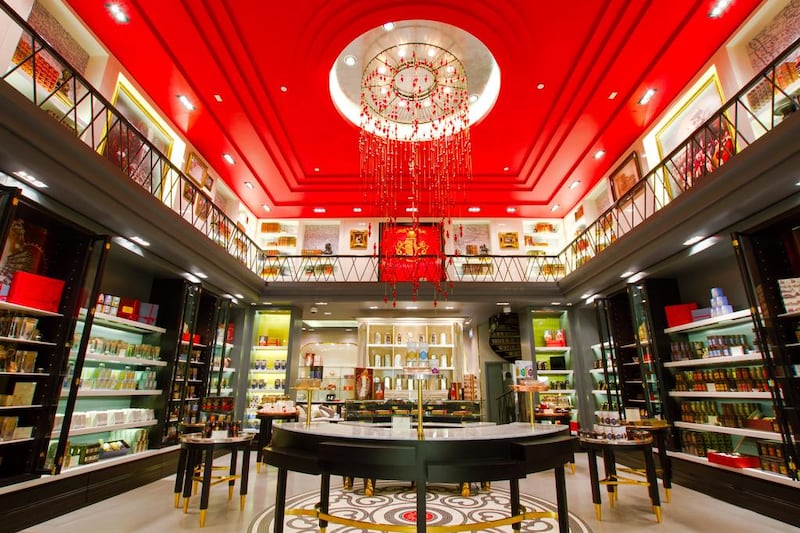Abu Dhabi’s Lulu Group has made its first foray into luxury retail after acquiring a stake in the UK-based East India Company.
The investment will help to fund the opening of as many as 15 stores across the Middle East and Asia.
Abu Dhabi’s retail major this week signed a deal with the trading firm for a 10 per cent stake in the company and a 40 per cent stake in its fine foods subsidiary for US$82 million.
With the investment the East India Fine Foods Company is expected to expand its store network in Europe and the Far East, and enter the United States, according to Yusuff Ali, the managing director of Lulu Group.
“We will support East India Company to develop into a truly global luxury brand,” he said.
Mr Ali has made an initial investment of $60m and will invest a further $25m in the second phase.
The company did not elaborate on what that phase would involve.
The East India Company’s fine foods unit in July entered the UAE market with a store at The Avenue at Etihad Towers in Abu Dhabi with its local partner, BinHendi Enterprises. This was its third country in the Middle East after Kuwait and Qatar. It has 41 stores across 18 countries, including its flagship at London’s Mayfair, and also sells online.
Lulu Group will look to leverage the brand equity associated with the East India Company (EIC) nameplate, said a Lulu spokesman.
The Indian businessman Sanjiv Mehta, now the EIC chairman, bought rights to the East India Company from its various shareholders in 2005 and relaunched it in 2010. The Indian car manufacturer Mahindra Group invested an undisclosed sum in the firm in 2011.
The UK company at that time had said it planned $100m investment over the next five years and wanted to enter the furniture and home decor, publishing, jewellery and real estate sectors.
First founded in 1600, the EIC built up an empire on the back of its spice trade until it was dissolved in 1874.
Lulu Group operates 112 supermarkets and hypermarkets in nine countries, with operations in 32 countries. Last year it had a turnover of more than $5 billion. Retail sales in the UAE reached $66bn last year, up 5 per cent, according to the consultant AT Kearney’s Global Retail Development Index released in June.
The grocery market is getting saturated in the UAE, pushing retail chains such as Lulu Hypermarkets and Majid Al Futtaim to expand outside the country. In the next two years, Lulu plans to open 50 hypermarkets in Oman, Qatar, Kuwait, Bahrain, Saudi Arabia and Malaysia, according to consultants AT Kearney’s Global Retail Development Index released in June.
With its first foray into the luxury goods sector with EIC, Lulu is looking to tap a growing global luxury market, especially in the premium food retail segment. In the Arabian Gulf region alone, food retail sales is expected to grow at 8.8 per cent annually through 2016 driven by demand for high-value food items, higher than that of non-food retail sales at 6.6 per cent, according to Alpen Capital.
Britain’s high-end department store Fortnum and Mason selling tea, chocolates and jams opened it first outlet outside the UK in Dubai in March. It joined Lafayette Gourmet, another gourmet grocer, in the Dubai Mall.
ssahoo@thenational.ae
Follow The National's Business section on Twitter





